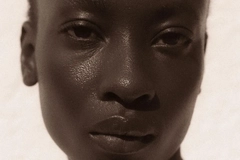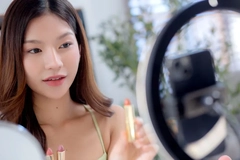All eyes on Armani: L’Oréal reportedly targets beauty division
Key takeaways
- Giorgio Armani’s will gives L’Oréal, LVMH, and EssilorLuxottica priority as potential buyers of his empire.
- L’Oréal is said to be only interested in Armani’s profitable beauty business, not fashion or accessories.
- The French group already holds a license for Armani Beauty until 2050, worth an estimated €1.5 billion (US$1.76 billion) annually.

Giorgio Armani’s death at 91 has triggered speculation on the company’s future. In his will, L’Oréal, LVMH (Moët Hennessy Louis Vuitton), and EssilorLuxottica are explicitly prioritized over other buyers. However, L’Oréal is reportedly only interested in the profitable beauty arm, not fashion or other categories.
The French beauty giant already holds a license for Armani fragrances, skin care, and makeup, ensuring Armani Beauty’s place in its portfolio, regardless of ownership, until 2050.
Armani’s will instructs his heirs to sell an initial 15% stake of the business within 18 months, with the possibility to increase to a majority after three years.
If no priority buyers purchase the second tranche, the alternative path is an initial public offering (IPO). If the brand pursues an IPO, its shares would be sold to institutional investors and usually also to retail investors.

“Giorgio Armani was, without question, one of the greatest creators of the last hundred years,” Jean-Paul Agon, Chairman, and Nicolas Hieronimus, CEO of L’Oréal Group, said at his passing.
“Together, we have built one of the most desirable beauty brands in the world. We are committed to upholding its legacy in line with the heritage of Mr. Armani.”
Pocketing prestige
According to analysts, Armani Beauty generates approximately €1.5 billion (US$1.76 billion) annually, representing roughly 10% of L’Oréal’s luxury division sales.
While L’Oréal’s Luxe division is not its single most profitable unit by margin, that title belongs to Dermatological Beauty, it does remain one of the group’s most powerful growth and revenue engines.
Luxe generated €7.6 billion (US$8.9 billion) in sales in the first half of 2025, more than twice the size of Dermatological Beauty. It also saw a 22.3% operating margin.
As the company’s prestige powerhouse, Luxe is anchored by fragrances and couture makeup brands, making Armani’s €1.5 billion (US$1.76 billion) beauty license a strategically vital part of the portfolio.
However, thus far, L’Oréal has remained strictly focused on core beauty businesses, avoiding fashion or accessories. This could have implications for Armani’s stake sale, as the other potential buyers (LVMH, EssilorLuxottica) may pursue larger stakes in Armani.
.jpg) L’Oréal’s license for Armani’s fragrances, skin care, and makeup ensures its place in the French beauty giant’s portfolio regardless of ownership, until 2050.EssilorLuxottica designs, manufactures, and distributes advanced vision care products, eyewear, and med-tech solutions. Meanwhile, LVMH is a global holding company and conglomerate specializing in luxury goods. It owns the Sephora brand, among other prestige beauty offerings.
L’Oréal’s license for Armani’s fragrances, skin care, and makeup ensures its place in the French beauty giant’s portfolio regardless of ownership, until 2050.EssilorLuxottica designs, manufactures, and distributes advanced vision care products, eyewear, and med-tech solutions. Meanwhile, LVMH is a global holding company and conglomerate specializing in luxury goods. It owns the Sephora brand, among other prestige beauty offerings.
Beyond beauty, Armani’s empire includes ready-to-wear fashion lines, haute couture, interior design, eyewear, and watches. The brand generated €2.3 billion (US$2.7 billion) in revenue in 2024.
Premium picks up
This year, a wave of businesses flocked to strengthen their positions in luxury markets as the demand for prestige beauty increased.
Market researcher Innova Market Insights’ data indicates a 27% growth in personal care launches with premium claims from July 2019 to June 2024.
In its Premium Market Report (2024), the researcher says the global wellness economy is projected to reach US$8.5 trillion by 2027, with beauty and wellness representing a significant portion.
Amorepacific noticed this demand and pledged earlier this month to rank among the top three global companies in the premium skin care sector. The K-beauty company plans on doing so by increasing its share of overseas sales to 70% and strengthening its business portfolio.
Meanwhile, Indian retailer Nykaa reported a 28% increase in gross profit for Q4 compared to last year. It attributed its gains largely to a surge in premium beauty.













